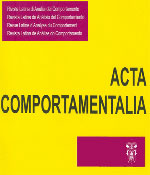Le behaviorisme, une revolution americaine
DOI:
https://doi.org/10.32870/ac.v3i3.18322Abstract
Some French psychologists assumed that H. Pieron was the very true actor of the "behavioristic revolution" instead of J. B. Watson. But the comparative analysis of the two founding texts shows two major differences between French and American "behaviorism": 1) Pieron adopted a reductionist attitude in considering that behavior will be some day reduced to its physiological determinants; Watson, on the contrary, proposed to reduce all the conduct to behavior, with no consideration for any physiological explanation. 2) Pieron was a neo-lamarckian, convinced of the heredity of acquired characters; in this respect, his psychology was quite different from that of Watson who worked in a darwinist context and was interested by learning. The general context of the two considered lectures was also very different: Watson's lecture was immediately received as a revolution, but Pieron's one was almost ignored. So, the "behaviorist revolution" could only have been American.
Downloads
Downloads
How to Cite
Issue
Section
License

<a rel="license" href="http://creativecommons.org/licenses/by-nc-sa/4.0/"><img alt="Licencia de Creative Commons" style="border-width:0" src="https://i.creativecommons.org/l/by-nc-sa/4.0/88x31.png" /></a><br />Este obra está bajo una <a rel="license" href="http://creativecommons.org/licenses/by-nc-sa/4.0/">licencia de Creative Commons Reconocimiento-NoComercial-CompartirIgual 4.0 Internacional</a>.






